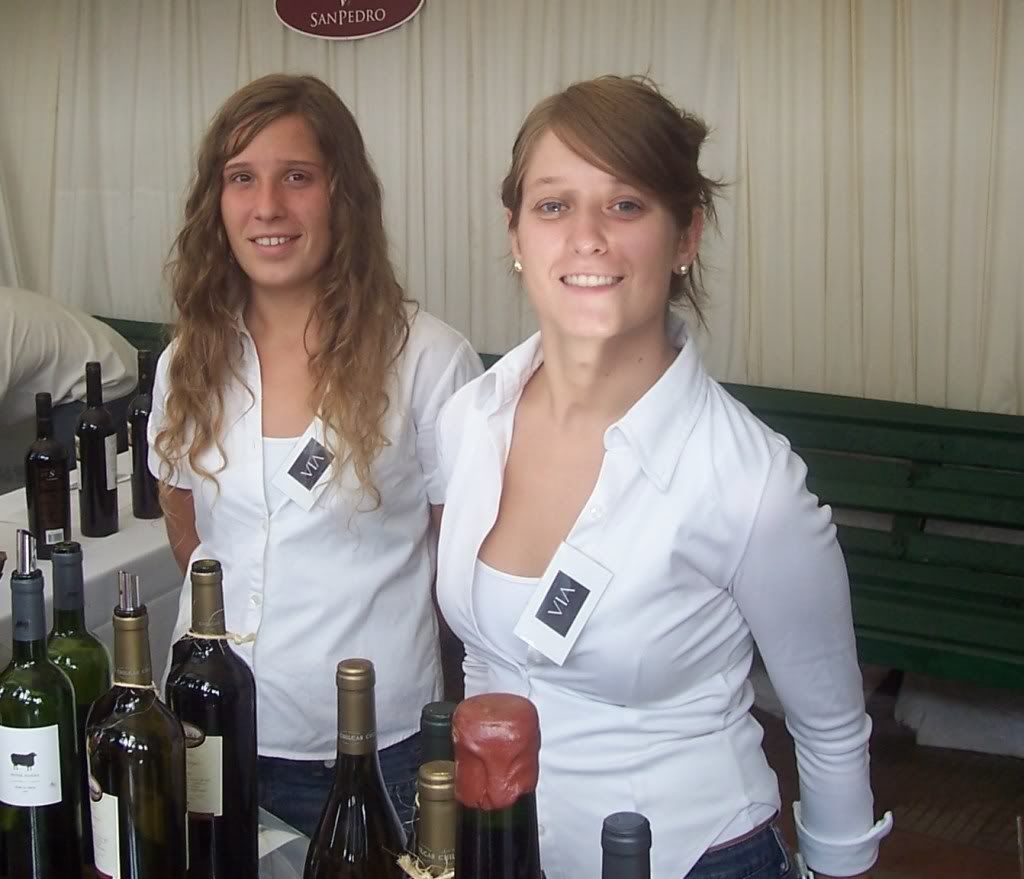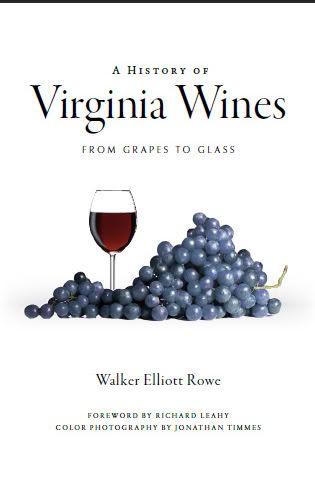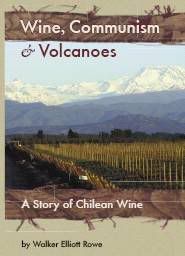As Virginia’s burgeoning population expands outward, cul-de-sac neighborhoods increasingly find themselves thrust in the middle of what was formerly open space farmland. People, whose only prior experience with farming has been perusing the aisles of Safeway, suddenly find themselves awakened in the middle of the night by the howl of a frost-dispelling wind machine. Or they grow concerned when the vineyard tractor next door draws perilously close to their house with an airblast sprayer spewing the noxious aroma of sulfur into the air.
Farmers cannot grow grapes, apples, or peaches without spraying them against mildew, rot, and Japanese beetles that would otherwise decimate their valuable fruit and defoliate their vines and trees. But the layman does not understand this and is alarmed at the site of the agriculture apparatus in full-blown operation. He assumes the farmer pollutes the groundwater and streams with agriculture runoff.
Perceived notions are difficult to dispel. The son of the late owner of the Washington Redskins learned this lesson first-hand when he built his vineyard next to a school in tony Middleburg. Parents alarmed at the prospect of pesticide drift asked for a meeting. Mr. Cooke dispatched his viticulturist to explain to a frosty crowd that the vineyard and winery would be a model of organic farming and would in no way cause harm to people, plants, nor fauna.
Consumers assume that farming would be absolutely benign if all farming were simply “organic”. This clever phrase wrapped in nostalgia and whimsy is a bit disingenuous for it’s not the absolute panacea for an environmental Garden of Eden. For example, composted chicken manure is organic but it can flow into the Chesapeake Bay and cause algae blooms.
For an herbicide, pesticide, or fungicide to be considered organic it must be sanctioned as such by the OMRI (Organic Materials Review Institute). That staid body of bureaucrats listens closely to leaders of the organic movement. They say that a product can only be considered organic if it comes naturally from the soil. Yet products that are byproducts of naturally occurring compounds generally cannot gain this classification. The rigidity of this rule frustrates the wine grape farmer who does not see the reasoning behind this logic. Thus sulfur, with its foul swell, and copper, which is a metal, are labeled organic but phosphoric acid is not.
Virginia vineyards do not want to wrestle over what is the definition of organic. Rather a movement is underway in Virginia to define sustainable agriculture practices for the Virginia vineyards modeled on Oregon’s LIVE (Low Input Viticulture and Enology) program. Jason Murray, a cooperative extension agent in Loudon County, is working with a handful of the most experienced Virginia wine grape growers to define what are environmentally-friendly farming practices. Vineyards wanting to adhere to LIVE standards will be directed what they can and cannot do.
Beyond the LIVE program there are other ways that vineyards strive to leave the smallest footprint possible on the surrounding terrain. For example, there is the notion of “integrated pest management” or IPM. IPM means to use environmentally friendly means to rid the vineyard of pests. For the grape berry moth and Japanese beetle, this means applying sexual lures (pheremones) to confuse the copulating creatures rather than dose them with Danitol. The moths are free to have their dalliance elsewhere, but this keeps the larvae and bugs from eating the grape leaves or punching holes in the berries.
To reduce agriculture runoff, the U.S. Fish and Wildlife Service, Ducks Unlimited, and others have funded the CREP (Conservation Reserve Enhancement Program) program to pay farmers to plant bushes and trees to maintain riparian buffer zones along streams. The farmer is paid to erect fences to keep cattle from wading into and defecating in streams and the government picks up the tab to drill wells and build ponds for their cattle.
In Orange County, next to the sprawling Horton Vineyards Berry Hill vineyard is a business dedicated to developing organic and environmentally friendly pesticides. This is Saint Gabriel Laboratories whose web site, milkyspore.com, refers to the name of a naturally occurring bacteria that attacks Japanese beetles in the soil before they can become airborne. Saint Gabriel Laboratories also produces Burnout, which is a mixture of lemon juice and vinegar that is a replacement for the widely-used herbicide Roundup (glysophate).
Beyond integrated pest management and the LIVE program, vineyards with large acreage in counties with heavy development pressure are granting conservation easements. This prevents the sprawling farm from being divided into neighborhoods and carved up by the bulldozer. The farmer gets a capital loss for their tax return and the environmentalist gets the preservation of green space. Farmers often are land rich and cash poor, so many have no taxable income. Consequently, in Virginia a business has emerged to broker these Virginia tax losses to wealthy individuals.
In sum, it is possible and is in fact happening that the burgeoning Virginia wine business can expand and at the same time foster the goal of preventing pesticides from fouling the air, groundwater, and stream. As the industry grows, perhaps farmers in the Southeast corner of the state, who have seen their federal peanut subsidies cut off, could plant some grapes, protect the environment from development and pollution, and increase the acres under vine in Virginia.
(This article was published on the op-ed page of the Richmond Times Dispatch.)
Subscribe to:
Post Comments (Atom)






No comments:
Post a Comment